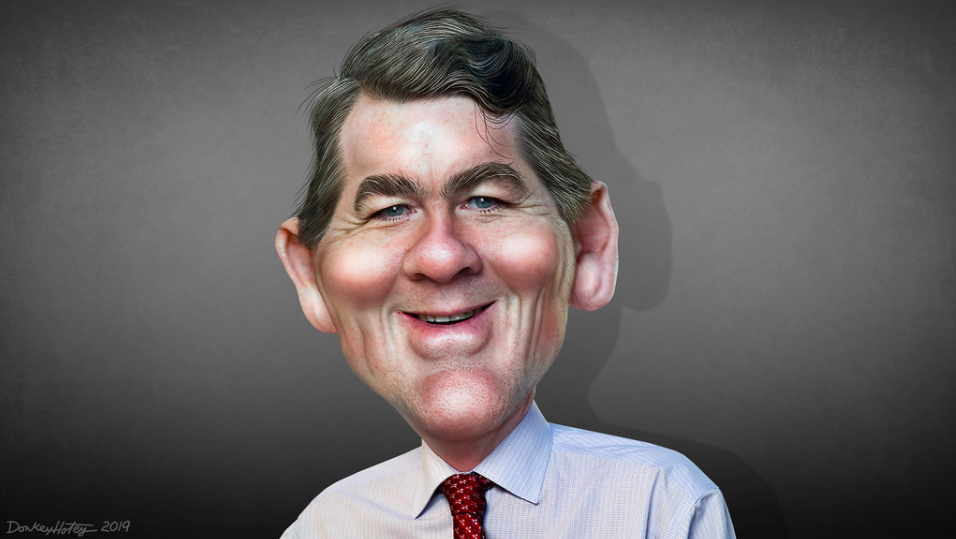Editor’s Note: This post is the first part in a series examining failed 2020 candidacies. See our other campaign postmortem posts: Julián Castro
by Kyle Creech and Nick DiScala
Michael Bennet announced on May 2, 2019, that he was entering the race to become the Democratic nominee for President of the United States. Michael Bennet is currently the sitting senior United States Senator from Colorado, a position he has held since 2009. Before Sen. Bennet’s time in Congress, he was also the Superintendent for the Denver Public School Systems, whose population is three times larger than a certain former Mayor’s town in South Bend, Indiana (a joke that Sen. Bennet repeatedly cracked on the campaign trail). This role led Sen. Bennet to the core ideas behind his run for president, education and making education “equal” by the end of his perspective two terms as president. Once a quiet and reserved Senator, Bennet made national news when he went against the Republican party establishment and Sen. Ted Cruz during a government shutdown, which to some, gave Sen. Bennet a false sense of widespread popularity among the primary electorate. Sen. Bennet also ran on the idea of expanding President Obama’s Affordable Care Act, have the United States be a leading force in the fight against climate change, addressing economic mobility, and restoring integrity to the political scene.
During Sen. Bennet’s time in Congress, he worked in a bipartisan manner to pass legislation that many have revered as moderate and not too liberal or conservative. In order to obtain the Democratic nomination, Sen. Bennet specifically targeted moderate voters during his run for the presidency. However, he shared this strategy with Former Vice-President Joe Biden, Mayor Pete Buttigieg, Sen. Elizabeth Warren, and Sen. Amy Klobuchar. In a survey conducted by Business Insider, Sen. Bennet was placed as one of the most moderate candidates in the race, however, he was voted among the least likable candidates in the race. His lack of likeability wasn’t exactly attributed to his personality per se but rather a lack of name recognition among those surveyed.
Micheal Bennet’s inability to distinguish himself from other more moderately minded candidates contributed significantly to his departure. Bennet’s campaign was incredibly similar to that of Sen. Amy Klobuchar and Former Mayor Pete Buttigieg in terms of policy and overall messaging. Notably, on issues such as health care and education, two main hallmarks of Bennet’s campaign. These similarities were acknowledged as a threat to Bennet’s campaign when Sen. Bennet accused Buttigieg and Biden of copying his health care policy and noted that these similarities could confuse voters. Sen. Bennet was competing for the same group of voters as these more well-known candidates which ultimately led to him being drowned out in terms of voter recognition. This consolidation of the moderate vote by upper-tier candidates left an incredibly small portion of voters for Bennet to build a winning coalition off of. It should be noted, however, that the recent surge in popularity for Sen. Bernie Sanders and his subsequent electoral victories could have boded well for a moderate candidate like Sen. Bennet. Some more moderate primary voters are starting to attempt to coalesce behind a single moderate candidate to prevent the nomination of Sen. Sanders. If Sen. Bennet had stayed in the race, the chances of this candidate being him would have still been incredibly low, but this would have provided another opportunity for Bennet.
Similar to other lower-tier candidates, Sen. Bennet focused a majority of his attention and campaign on the New Hampshire Primary, in the hopes of having a strong showing. The Bennet campaign admitted that a first or second-place finish was notably out of reach for the Colorado Sen., however, Bennet was actively seeking a strong fourth or fifth-place finish. The hope was that a significant showing in New Hampshire would raise voter awareness about Bennet’s campaign and raise his abysmally low poll numbers. This strategy ultimately failed with Bennet only garnering 0.3% of the vote on primary day in New Hampshire. This showing was one of the major factors that led to Bennet’s departure from the race. Additionally, his decision to effectively skip the Iowa Caucuses meant that any media attention Sen. Bennet would have received based on his electoral performance there was nonexistent.
Sen. Bennet also struggled with fundraising goals as his campaign struggled to raise significant amounts of money. According to the last FEC filing submitted by his campaign before his campaign was suspended, Sen. Bennet raised a total of $7.3 million, throughout his entire presidential run. His inability to attract more donors could be attributed to his failure to appear on more than two national debates. His lack of national exposure failed to attract widespread support which has helped fund other presidential campaigns such as that of Sen. Bernie Sanders. This lack of funding also contributed to his lack of organizational strength in New Hampshire, which forced Bennet to rely on a series of town hall-style appearances in an effort to obtain more support.
Michael Bennet has been notably quiet in terms of media appearances since his departure from the race, leaving many to question what his future plans may be. Sen. Bennet has not indicated if he is inclined to endorse any of his former opponents, however, many speculate that Sen. Bennet will align himself with a more moderately minded candidate. If he chooses to do this, it would be reasonable to expect the Senator to angle for a possible cabinet-level position, should that Democrat win.
